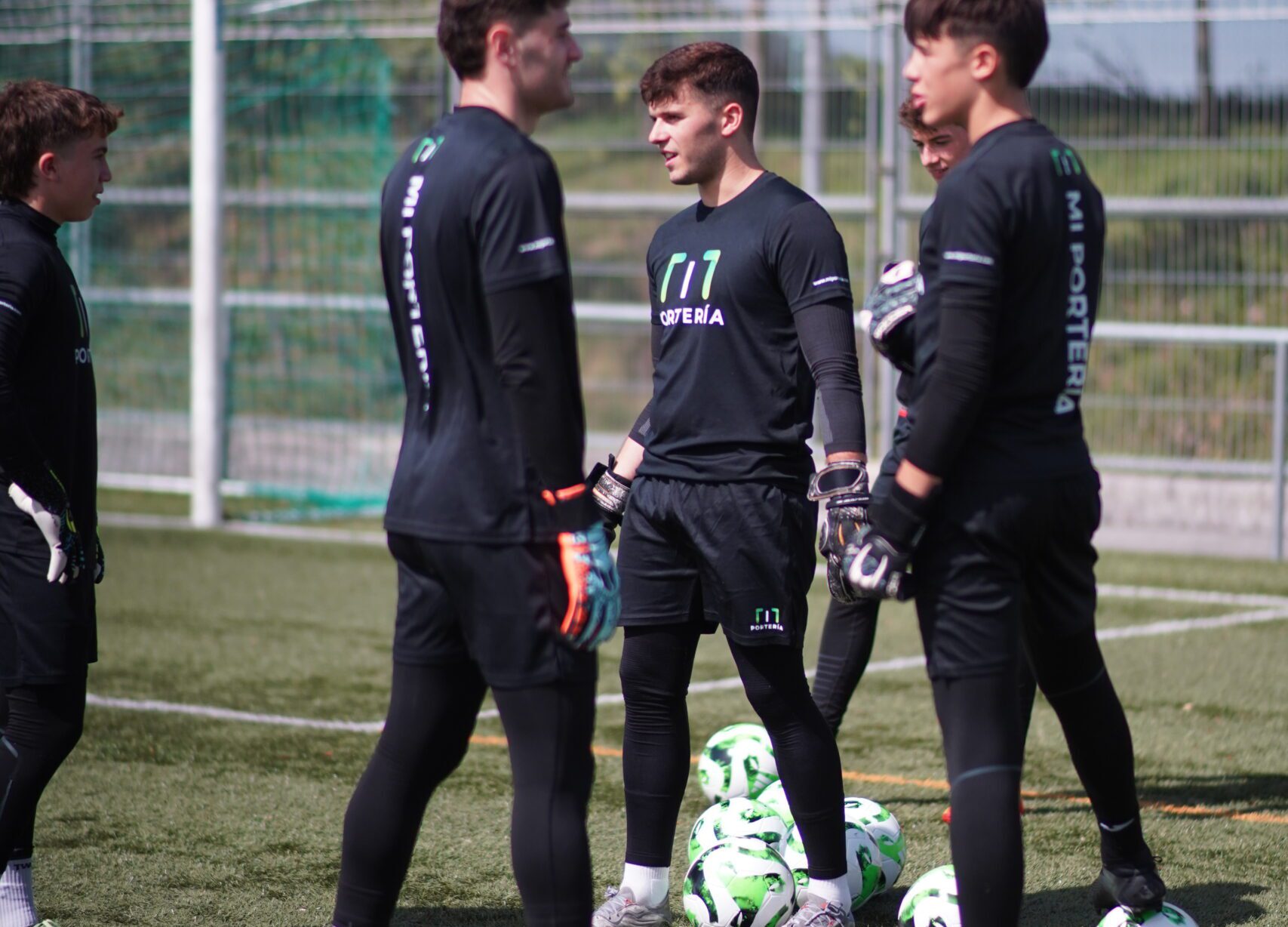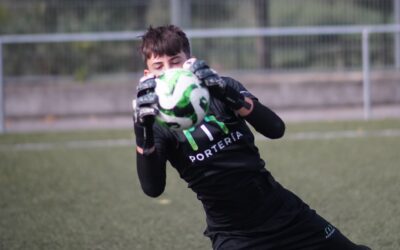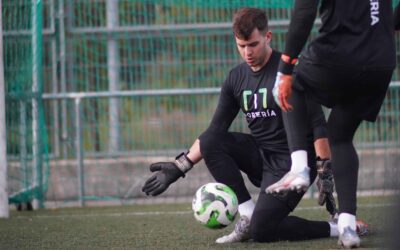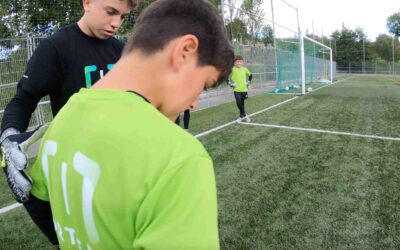The soccer coach specialized in goalkeeper training is increasingly present in elite coaching staffs and training academies. The soccer industry, aware of the importance of the goalkeeper in the group’s collective performance, has opened its doors wide to our professional figure. We even see goalkeeping coaches setting up their own private academies and working independently.
In any of these contexts, the goalkeeping coach generally deals with situations that make it difficult to achieve an efficient training time. Some examples are huge groups, goalkeepers with different levels, lateness, lack of equipment, short sessions, travels, load management, etc. In any case, we aim to work with goalkeepers that learn and understand the game, for them to progressively become more and more effective in front of the situations that arise in the competition. That is why despite managing all these disadvantageous circumstances, we must continue insisting on trying to elaborate good training to increase the level of our goalkeepers.
Just like all of you, when we try to achieve this objective, we ask ourselves thousands of questions, for example:
How should I organize the session?
What kind of exercises should I propose: isolated or
contextualized?
Should I do a good warm-up or should I try to develop a specific concept?
The thoughtful answers to the above questions provide us with many solutions to our problems, so we will try to answer them individually. The first thing to do is to pay attention to the internal structure of the session or the exercises we propose. It is essential to elaborate dynamic exercises where not only one goalkeeper but two or even three, can be an excellent option to make the most of the time. When we involve not performing goalkeepers as helpers during the task, this will help them keep their attention on it and, at the same time, favor their learning by observing their teammate.
Within the organization of the specific session part, an essential aspect that can help us to make the most of the available time is the “feedback moment“. This term refers to the moment when we talk to or give information to our goalkeepers during the exercise or task. It is evident that, due to the lack of time, correcting the goalkeepers one by one may be an unnecessary waste of time. For this reason, we invite you to pre-establish how the task will be developed and specify the exact times when we will stop the activity and give some feedback to our keepers. There are many options to carry out this objective: at the end of an exercise, after each variant, exposing the common mistakes at the beginning of the exercise, correcting a specific goalkeeper in each exercise…
The important thing here is that each correction, whether individual or collective, becomes valuable information for the whole goalkeepers’ group. Thus, it is evident that during the task execution, we have to identify those common mistakes they make so that a single correction will benefit the rest too.
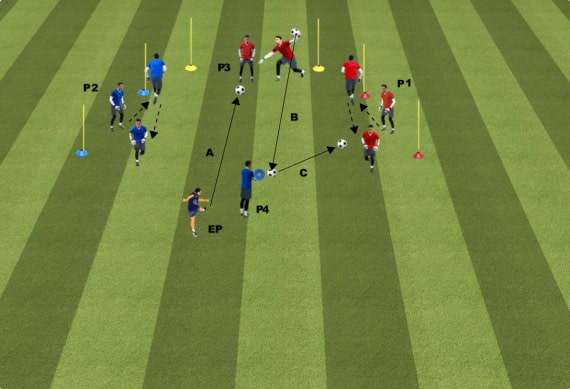
Due to the lack of time, when we program the exercises for our specific goalkeeping session, we usually make a common mistake: prioritize contextualized activities, thinking that by bringing the goalkeeper closer to the competition, we make better use of the little time we have available. In our opinion, this perspective is often wrong. By performing exercises with a more open decision-making, we do not accelerate the goalkeeper’s learning process, but rather the opposite. When we rush the learning process by designing tasks with a high uncertainty level, their objectives become abstract and do not facilitate the assimilation of concepts. We design exercises for the main part of the session without going through a proper warm-up, and above all, without considering other activities where we work on specific concepts in a much more concrete way.
We firmly believe this is perhaps the most common mistake that goalkeeper coaches tend to make. If we always set up very open situations, the goalkeeper will deal with a multitude of decisions for which he is often not motorically prepared, or directly does not have the technical-tactical solution. This is why our proposal here is clearly directed to the work of conceptual tasks. We see much more productive to take advantage of a half-hour session to develop blocking in aerial play accompanied by a good timing in the movement and the take-off; that, on the other hand, to work on competitive situations of lateral crosses with opposition and disruption, plus possible second actions in case of not gaining possession of the ball.
Obviously, it all depends on the level of the goalkeepers, but there is no doubt that a logical progression is fundamental, from technical-specific work to elaborated tasks close to the actual circumstances of the competition. We must build the house starting with the bases.
Otherwise, we could make faster progress at the beginning, but sooner or later the walls will end up falling because their foundations are not solid.
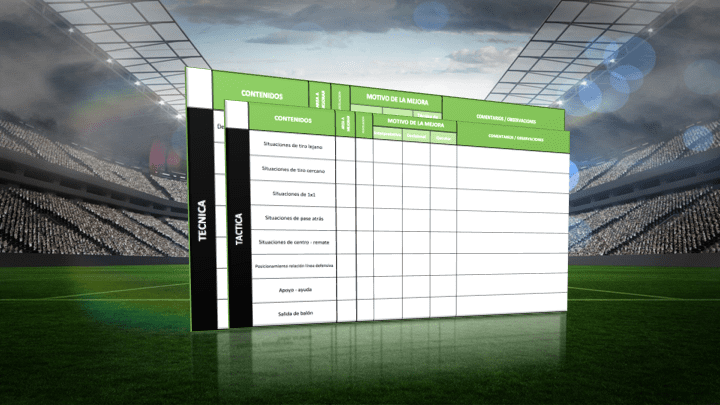
In this sense, the previous work of programming and planning plays a fundamental role. Beyond the tasks we choose to carry out, it is a priority to progressively divide and structure the contents. We can start working on the basic concepts and skills, and gradually introduce them into the competition to develop a successful understanding of the game. Even if the specific part is only 15 or 20 minutes long, concretizing and taking a certain technical-tactical content, facilitates its acquisition. For example, isolated tasks where the goalkeeper must close down the space in front of a specific ball and perform the knee flexion repeatedly will favor that, in a future similar situation during the competition, he will be able to dive aggressively, execute the knee flexion correctly and block the shot in the 1v1. This example can be extrapolated to any other game situation.
Finally, we invite you to reflect on your own planning and progression. Try to observe if the contents’ evolution encourages their assimilation. That extra time we dedicate to elaborate good content programming will exponentially facilitate the usefulness of our work in the field.
